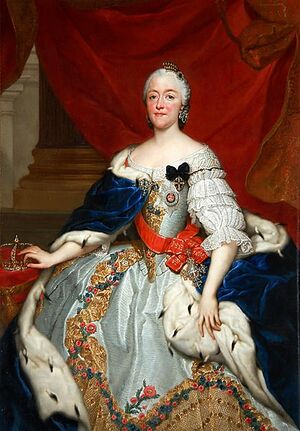Difference between revisions of "Duchess Maria Antonia of Bavaria"
(Created page with "{{Short description|poet}} {{Infobox person | honorific_prefix = | name = Maria Antonia of Bavaria<!-- use common name/article title --> | honorific_suffix...") |
|||
| Line 69: | Line 69: | ||
*Maria Amalia, Duchess of Zweibrücken-Birkenfeld | *Maria Amalia, Duchess of Zweibrücken-Birkenfeld | ||
*Maximilian, Crown Prince of Saxony | *Maximilian, Crown Prince of Saxony | ||
*Princess Teresa Maria | *Princess Teresa Maria}} | ||
| parents = <!-- overrides mother and father parameters --> | | parents = <!-- overrides mother and father parameters --> | ||
| mother = Maria Amalia of Austria<!-- may be used (optionally with father parameter) in place of parents parameter (displays "Parent(s)" as label) --> | | mother = Maria Amalia of Austria<!-- may be used (optionally with father parameter) in place of parents parameter (displays "Parent(s)" as label) --> | ||
Revision as of 13:03, 15 October 2021
Already her birth was celebrated by her parents with the performance of Pietro Torri's opera Amadis de Grecia. In her youth in Munich she received composition lessons from the renowned opera composers Giovanni Battista Ferrandini and Nicola Antonio Porpora. The festivities at her wedding to Frederick Christian of Saxony (1747) featured Christoph Willibald Gluck's opera Le nozze d'Ercole e d'Ebe and Johann Adolf Hasse's La Spartana generosa. In Dresden she continued her musical studies with Hasse and Nicola Porpora and felt particularly attached to the style of opera seria. She appeared as a singer and harpsichordist in performances of her own works in this genre as well as in numerous performances at court. In 1747 she was admitted to the Accademia dell'Arcadia in Rome, an internationally active literary academy and institution for the reform of opera.[1] The members interacted with each other without regard to their class distinctions and, in the spirit of a simple, natural country life, adopted shepherd's names (pseudonyms) for this purpose. Maria Antonia received the name Ermelinda Talea Pastorella Arcadia (ETPA).
Among many other artists and scientists, she also supported the Kapellmeister Johann Gottlieb Naumann and the painter family Mengs.
XXX in Philippe Jaroussky's discography, filmography and performance history
Studio albums
| Year | Title | Studio album |
|---|---|---|
On video
Concert programs
| Year | Title | Concert program |
|---|---|---|
See the respective program page for a list of possible recordings.
Complete list of musical pieces using words by XXXXXXXX
This listing only reflects the musical pieces performed by Philippe Jaroussky.
| Year published or performed | Title | Composer | Work | Album, video or concert program | Year first published/performed |
|---|---|---|---|---|---|
